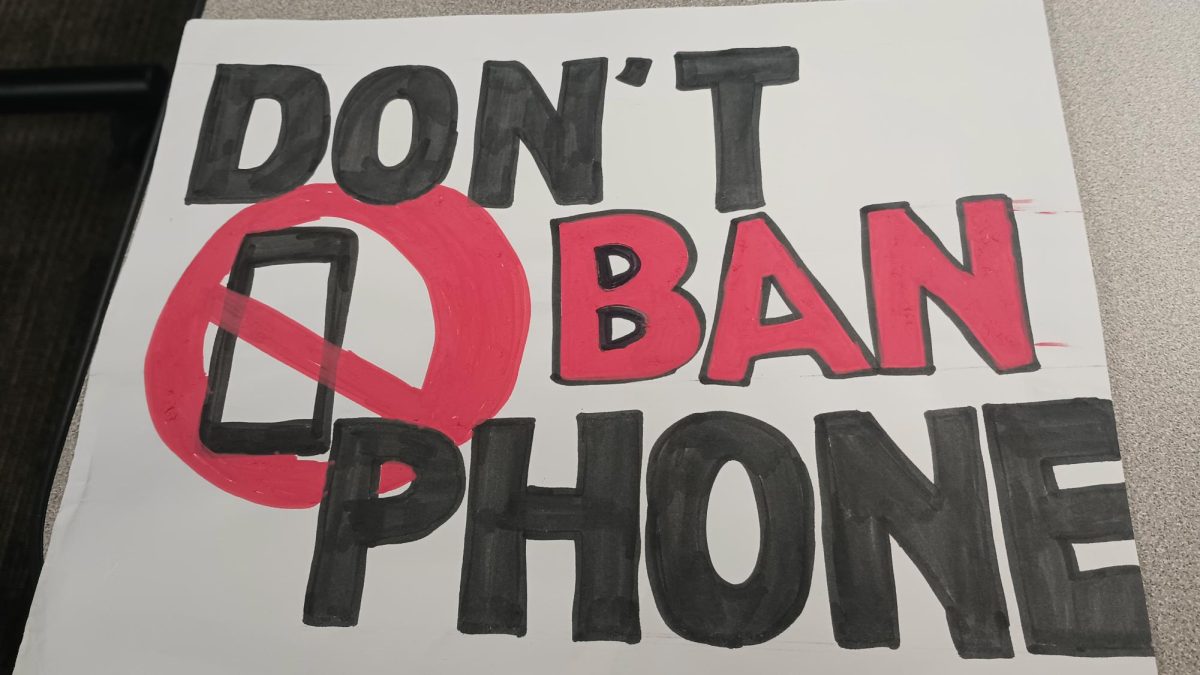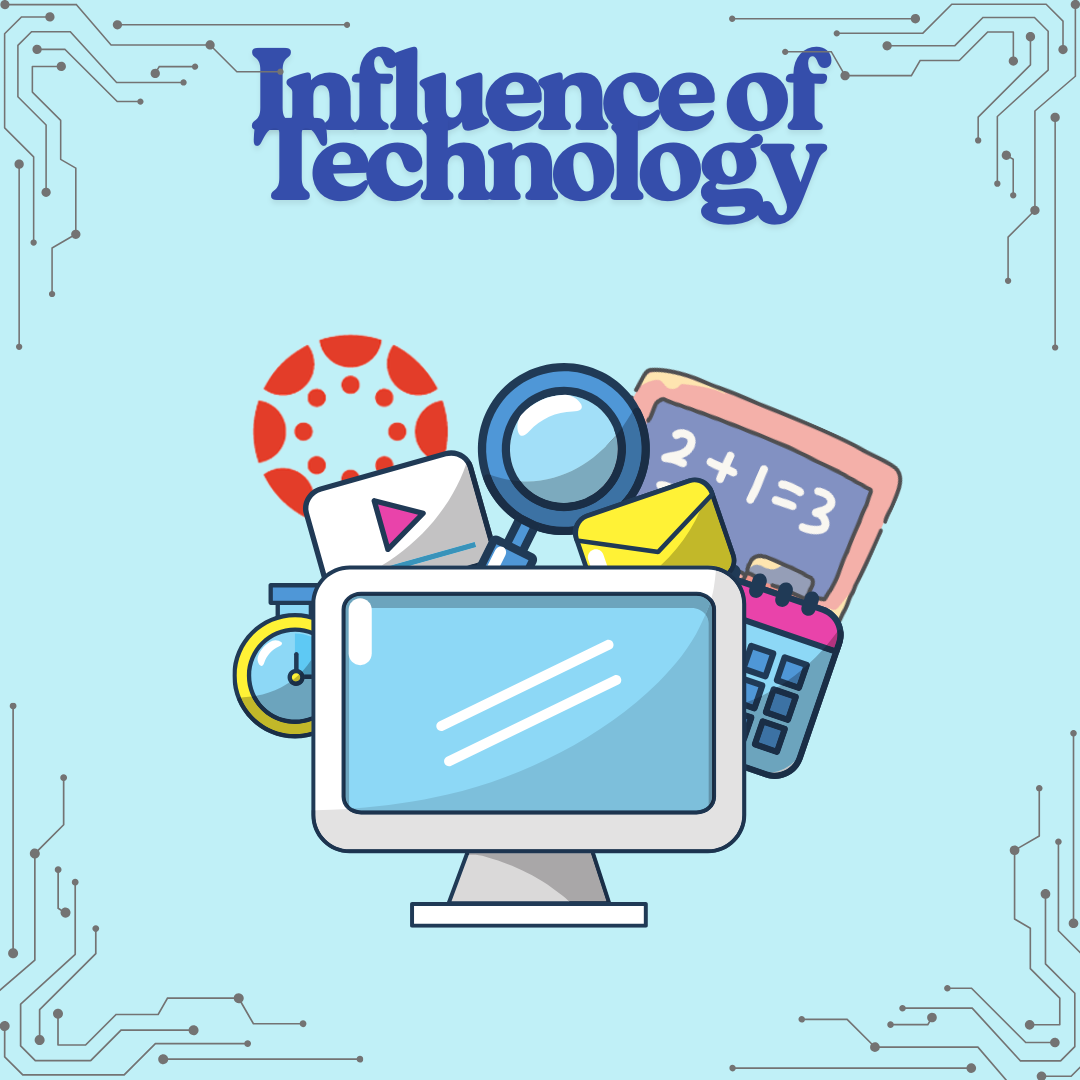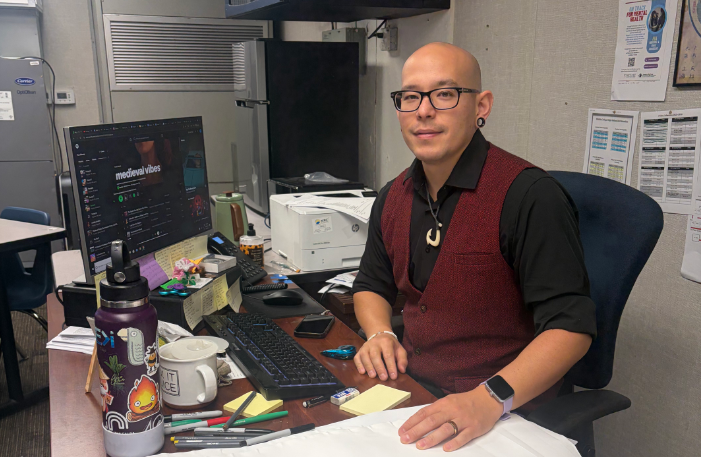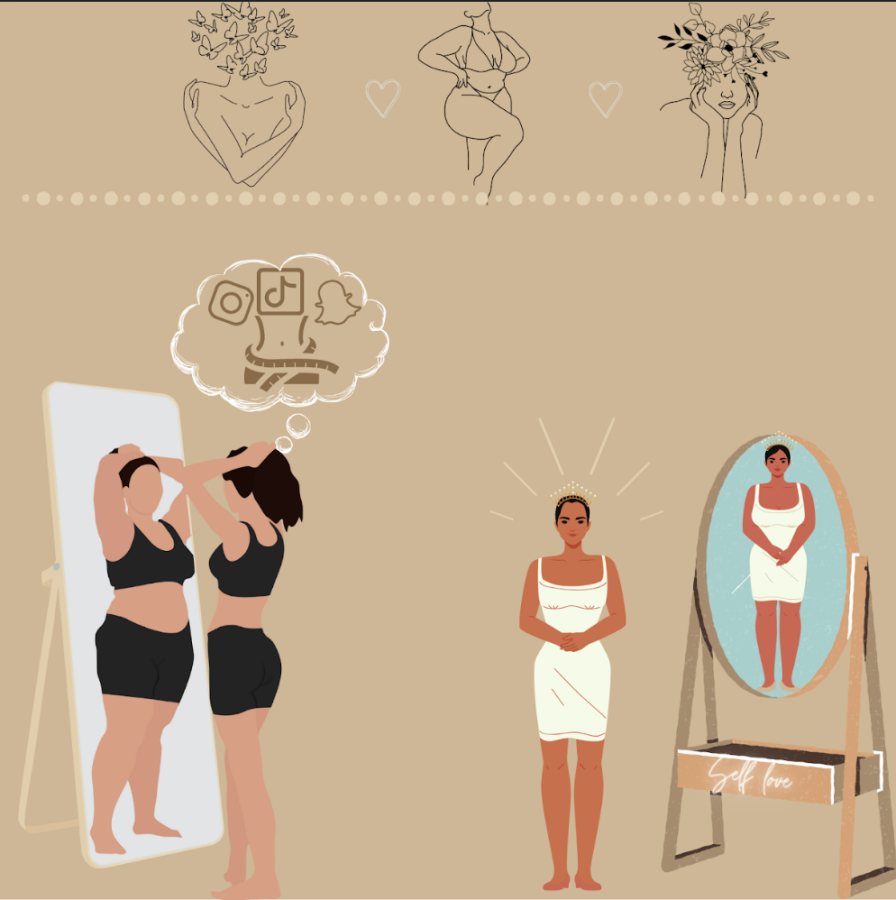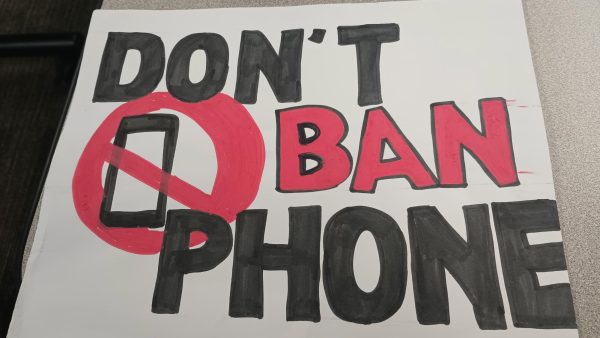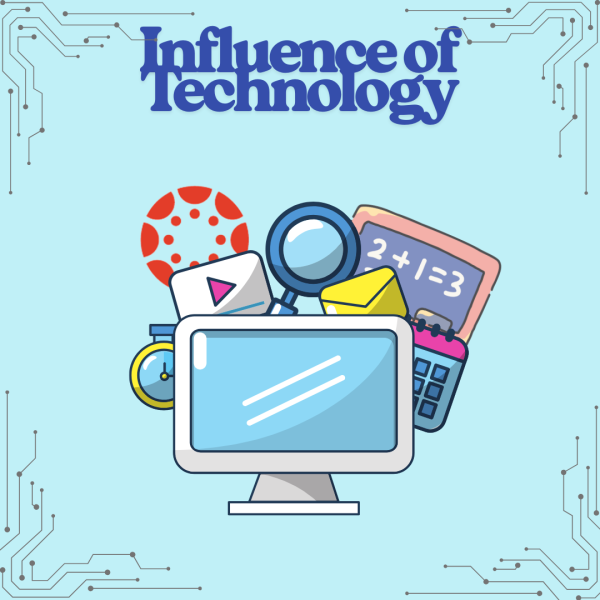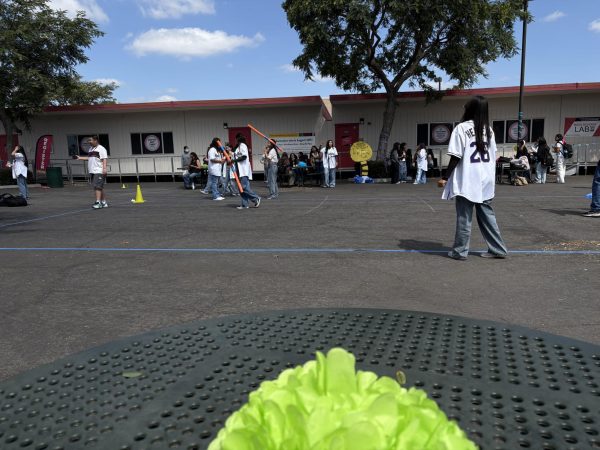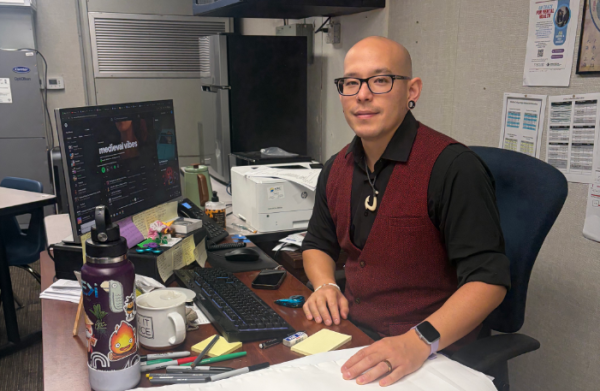Social media triggers eating disorders
Kimberly Campista (made with Canva)
Girls often have different visuals of their bodies when comparing themselves to influencers which cause further insecurities.
In a world where today’s girls’ acceptability standards are portrayed as ultimately unrealistic throughout social media, it increases insecurities and negative environments for young girls to truly appreciate their self-worth. Society and socials make it difficult for many girls to accept themselves as they are and it compromises their true identity by trying to look like something that is idealistic. Many fail to realize how fake social media actually is, with its depiction of slim bodies and pictures with perfect features that are completely overlooked. These all play a big destructive role within many teenage girls’ happiness as well as health.
The many influencers, models, and celebrities are usually the ones every girl looks up to on social media. They falsely portray their body figures which has an effect on the body image of the young ones.
As said in the article Social Media and Eating Disorders, “Social media can encourage competition and comparison that impacts how people view their own bodies. Viewing beautifully edited pictures can make people feel like their lives, bodies or experiences are less valuable compared to others.”
The way they portray their bodies outlines the beauty standards, which lowers self-esteems and interferes with the way girls view themselves. This type of guidance for the younger generation is vile to their mental state since it changes their point of view and interferes with the ability to comprehend that social media is only what they want you to see.
Senior Mariana Mora, 17, shares her opinion on Instagram models and how it affects teenagers’ confidence.
“Teenage girls have been raised to a certain set of beauty standards. It is probable that young girls are going to see models and the ideal type of clothing, style, and body type on social media. We see gorgeous models, and it makes us wonder how someone can look that stunning. I know I looked up to models because I thought that was what I was supposed to look like. I do know that growing up I saw the Kardashians and other famous people getting plastic surgery for not looking curvy or full enough. I don’t want young girls or anyone to think that their immediate solution to taking care of their image should be to get surgery,” she said.
Senior Christina Magan֘a also shares a piece of mind into this issue within our society.
“I don’t believe everything shown on social media is real. People on social media only post the good days/good things in life. No one posts the negative days which is why I don’t believe everything I see because it’s unrealistic. No one has the perfect life or the perfect body. Nowadays there are filters that alter your face to look a certain way, there are photo editing apps, and people angle their body and camera to look the best they can. I constantly see images on social media that make me reflect on my body. I just think to myself, ‘I wish I had a body like hers,’ but I don’t let it sadden me because I appreciate my body and I’m content with myself. Not everything is negatively influenced, for example, gym influencers, they can affect the way girls take care of themselves but in a positive way. They share meal preps and workout routines to help us achieve our ‘dream body.’ The same applies to beauty influencers, they share tips on how to do your hair and makeup so you can look your best,” she said.
Even though social media’s purpose is to show the best insights of your life, that can be exactly the issue. People on social media only show the best part of their lives and not their issues and flaws which portray them to live such a happy and perfect life however that is not the case since everyone lives different lives they go through different obstacles and different problems.
This source states, “Evidence shows that the parts of the brain that govern reasoning and good decision-making skills are not fully formed until the early 20s, so it’s no wonder that teens are so easily convinced that what they see on social media represents reality. Factor into that young women who already have a negative body image and may also be in treatment for an eating disorder, and you have a recipe for disaster. These teens are constantly seeking approval and ways to feel better about themselves as it is, so this added pressure can easily trigger disordered eating behaviors as they try to achieve an impossible standard.”
Juliahna Salgado, 19, also shares her thoughts on the harming side of social media.
“Social media is a joke that only portrays the good parts they want people to see. They don’t show the depressing parts of life. With so many people online I can say sometimes I can be brought down because you see really slim pretty girls on Instagram and you’re just there doubting and comparing yourself,” she said.
Social media plays some role in everyone’s life, whether some take it positively or negatively. Its validation is in the life of many. Some girls like to put themselves out there and boost their confidence while others are unfortunately brought down along with their self esteem and fall victim to eating disorders. The media feeds these teenage girls insecurities and interferes with their happiness and triggers their mindset to not truly accept themselves for who they are. Social media is used to share whatever people desire, but it should not reflect onto your self worth. Identify who you are as a person and what truly makes you beautiful.
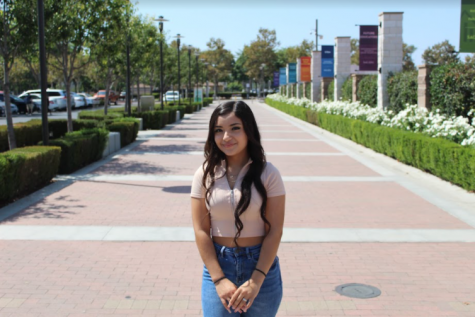
I'm taking three college classes, I have 1 brother and two sisters, and my favorite food is pasta.

